Kevin Compher
CR-COPEC: Causal Rationale of Corporate Performance Changes to Learn from Financial Reports
Oct 24, 2023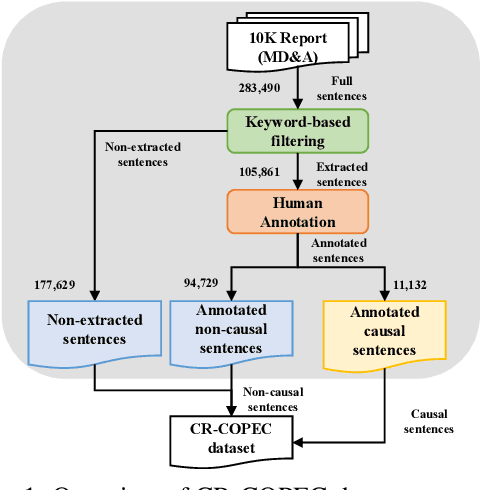
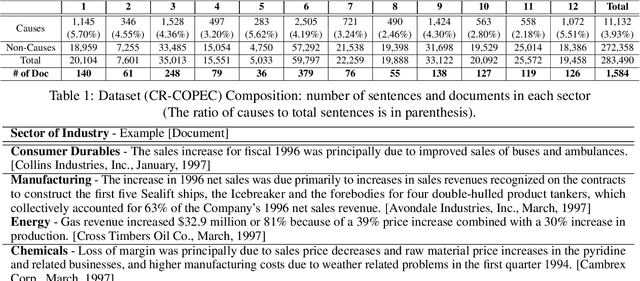
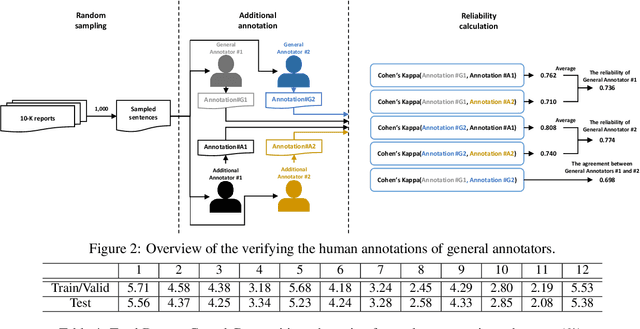
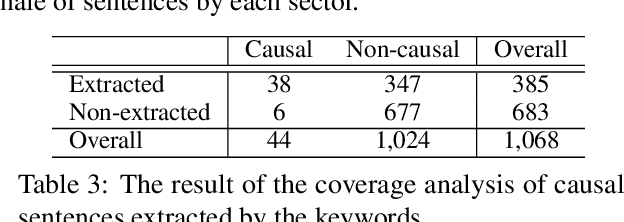
Abstract:In this paper, we introduce CR-COPEC called Causal Rationale of Corporate Performance Changes from financial reports. This is a comprehensive large-scale domain-adaptation causal sentence dataset to detect financial performance changes of corporate. CR-COPEC contributes to two major achievements. First, it detects causal rationale from 10-K annual reports of the U.S. companies, which contain experts' causal analysis following accounting standards in a formal manner. This dataset can be widely used by both individual investors and analysts as material information resources for investing and decision making without tremendous effort to read through all the documents. Second, it carefully considers different characteristics which affect the financial performance of companies in twelve industries. As a result, CR-COPEC can distinguish causal sentences in various industries by taking unique narratives in each industry into consideration. We also provide an extensive analysis of how well CR-COPEC dataset is constructed and suited for classifying target sentences as causal ones with respect to industry characteristics. Our dataset and experimental codes are publicly available.
Extending Environments To Measure Self-Reflection In Reinforcement Learning
Oct 13, 2021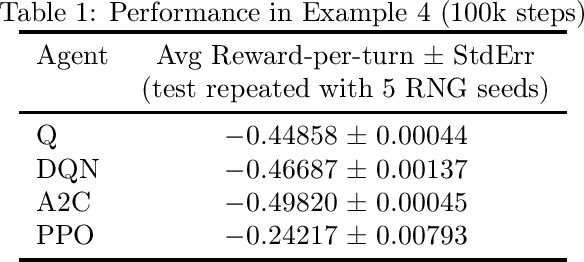
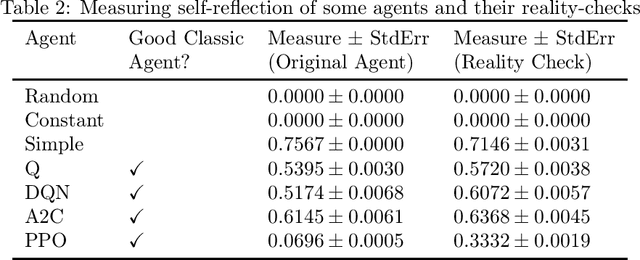
Abstract:We consider an extended notion of reinforcement learning in which the environment can simulate the agent and base its outputs on the agent's hypothetical behavior. Since good performance usually requires paying attention to whatever things the environment's outputs are based on, we argue that for an agent to achieve on-average good performance across many such extended environments, it is necessary for the agent to self-reflect. Thus, an agent's self-reflection ability can be numerically estimated by running the agent through a battery of extended environments. We are simultaneously releasing an open-source library of extended environments to serve as proof-of-concept of this technique. As the library is first-of-kind, we have avoided the difficult problem of optimizing it. Instead we have chosen environments with interesting properties. Some seem paradoxical, some lead to interesting thought experiments, some are even suggestive of how self-reflection might have evolved in nature. We give examples and introduce a simple transformation which experimentally seems to increase self-reflection.
 Add to Chrome
Add to Chrome Add to Firefox
Add to Firefox Add to Edge
Add to Edge